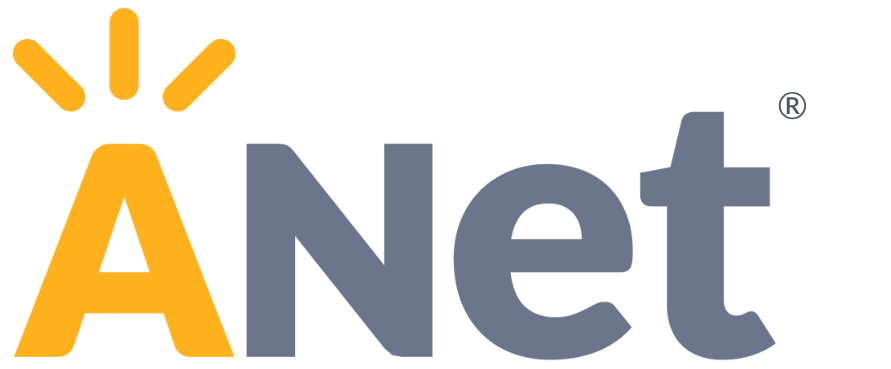
Principal Shari Meeks and Coach Angela Staples
As Angela Staples sends her kids off to school and daycare in the morning, her phone is already buzzing with calls and texts from educators across Memphis. As an ANet coach, she's in high demand.
Today, Angela’s on her way to visit the teachers and leaders at Raleigh-Egypt Middle/High School. She’s built close relationships with many educators in the building over the past two years she’s supported them. Together, they’ve faced challenges and shared many successes.
Among the successes—last year, Raleigh-Egypt jumped from a level 1 rating to a level 5, the highest rating as determined by the state of Tennessee. Parents who once avoided the school now compete to secure spots for their kids. This kind of success is all the more impressive since Principal Shari Meeks just joined the school in 2017.
But as Angela drives to Raleigh-Egypt today with her breakfast in her lap, her mind is focused on one thing: students.
Lead with equity
“It’s about what are we doing for kids that’s going to provide them with opportunities beyond high school and beyond the neighborhood they live in. ”
Angela is an experienced instructional leader, but she’s also an active citizen of the Memphis community. Many schools here that serve students of color exhibit a problem she can’t ignore—a school-to-prison pipeline.
This problem won’t improve unless schools actively try to change it. Angela believes equity must be part of the education conversation.
Principal Meeks agrees. “We’re a typical urban school with all of the socio-economic issues as far as poverty, behavior issues, traumatized children. Anything you can imagine, the vast majority of our students have been through it.”
“We have so many children with different needs. When you have a setting like this, instructional equity becomes huge. The equity piece is essential. It’s imperative.”
Every interaction Angela has with every principal, coach, teacher, and adult with influence over students’ lives begins with the crucial and uncomfortable question: Are we contributing to the pipeline-to-prison or diverting students from it?
She pushes educators on this all the time. “You have more kids in the hallway than you have to teach in the classroom,” she pointed out to Principal Meeks, two years ago. Her expertise may be instruction, but it became clear to Angela that discipline issues would impede instruction if not addressed. She did what any good coach would do: She adapted.
Attend to schools’ needs
“ANet’s methods make the standards reachable for every child. Whether they have socio-economic issues, emotional challenges, or learning disabilities, all of these standards are accessed when you have the structure, techniques, and methods ANet brings to the table. ”
There are no silver bullets is something Angela says because what works well in one school may not work in every school. But there is no need to reinvent the wheel. There are best practices we can share and resources we can customize. High-quality instruction is Angela’s goal for every school she coaches, but her approach to help them get there differs for each.
Her first few interactions with Raleigh-Egypt centered around strategic planning, before she moved to instruction. The school needed a better way to address behavior issues, so Angela helped develop a discipline strategy that would help the adults keep kids in class. She also connected Principal Meeks with Keisha Daley, vice principal at Benjamin Franklin Elementary School in Newark Public Schools, to discuss best practices for discipline.
Once discipline was under control, Angela began working with Raleigh-Egypt’s literacy coach to implement text-based planning, the school’s instructional priority. Principal Meeks is determined to carve out and protect time dedicated to this priority. “There are so many other issues that take away from instruction. Administrators get really busy, especially if there are threats to children,” she explains. “If that time with ANet can be protected, it increases the capacity of the administrator to help teachers and impact student achievement.”
Building the school team’s capacity to analyze data from assessments and student work was key to Raleigh-Egypt’s level 5 achievement. That, and patience from Principal Meeks and the leadership team. “The changes don’t necessarily happen overnight or in one year. It takes teachers time to grasp the whole process. If it doesn’t happen right away, don’t be alarmed, but know it's going to happen,” Principal Meeks advises other school leaders “Be patient and protect the time allotted for ANet.”
Establish trust
At every school she coaches, the staff accepts Angela as part of the team. It’s not just because she’s a pleasure to chat with (she is.) “Angela always gives me great methods. I can say, ‘I’m having this problem,’ and she’ll give me serious strategies, not just the what but the how,” Principal Meeks says.
Today, Angela’s dedicating most of her time at Raleigh-Egypt to supporting the new ELA and math coaches in building their knowledge of the standards and developing their observation and feedback skills. She works alongside teachers and leaders in deepening their understanding of their content while also helping leaders think through what structures will support teachers—and how to establish them.
“Some teachers are new and still had not understood the depth of the standards. Angela’s work comes from a place of really understanding standards and bringing in methods to transfer that knowledge from teacher to students…Teachers are now being more strategic about how they teach and how they plan. We see it in their achievement. ”
Principal Meeks walks out of her office to enthusiastically greet Angela, her laptop prepped with interactive running notes for Raleigh-Egypt’s upcoming Instructional Leadership Team meeting. She leads Angela back to her office where the two of them put their heads together to plan a protocol.
At ANet, we’re extremely proud of our partners’ achievements and the great work our coaches do to support them. All twelve of the schools Angela coached last year experienced boosts in student learning.
“I attribute so much to her,” says Principal Meeks.

